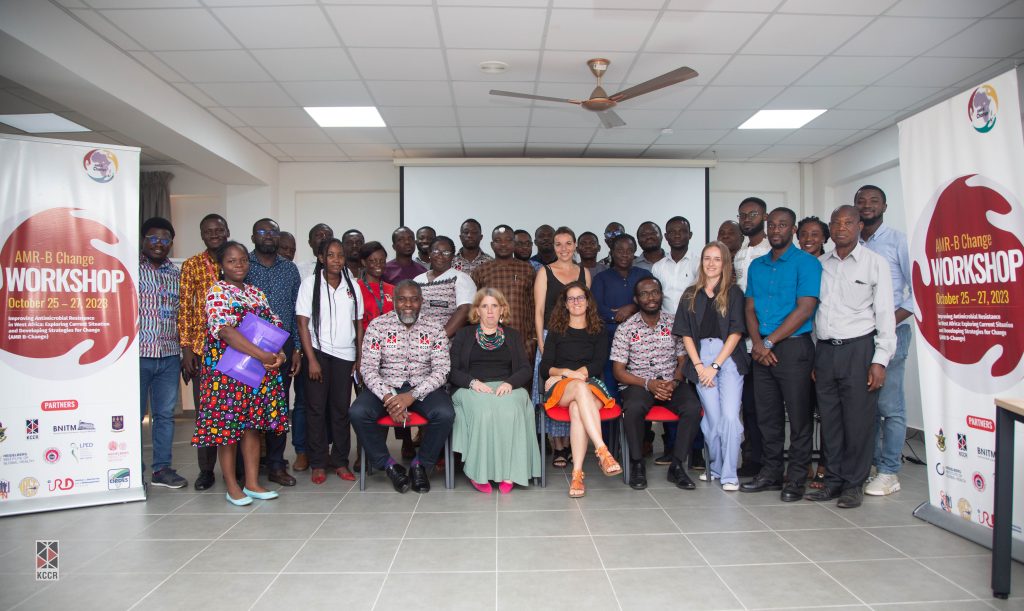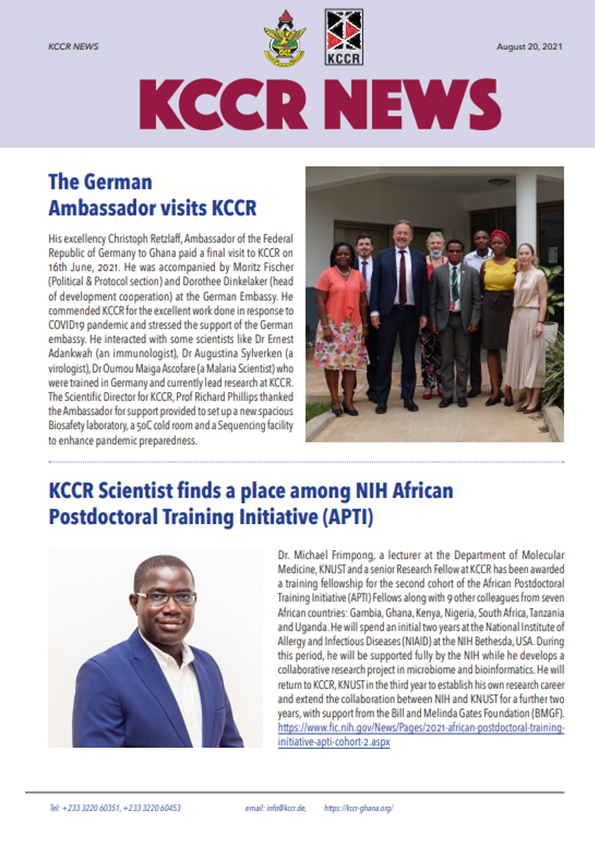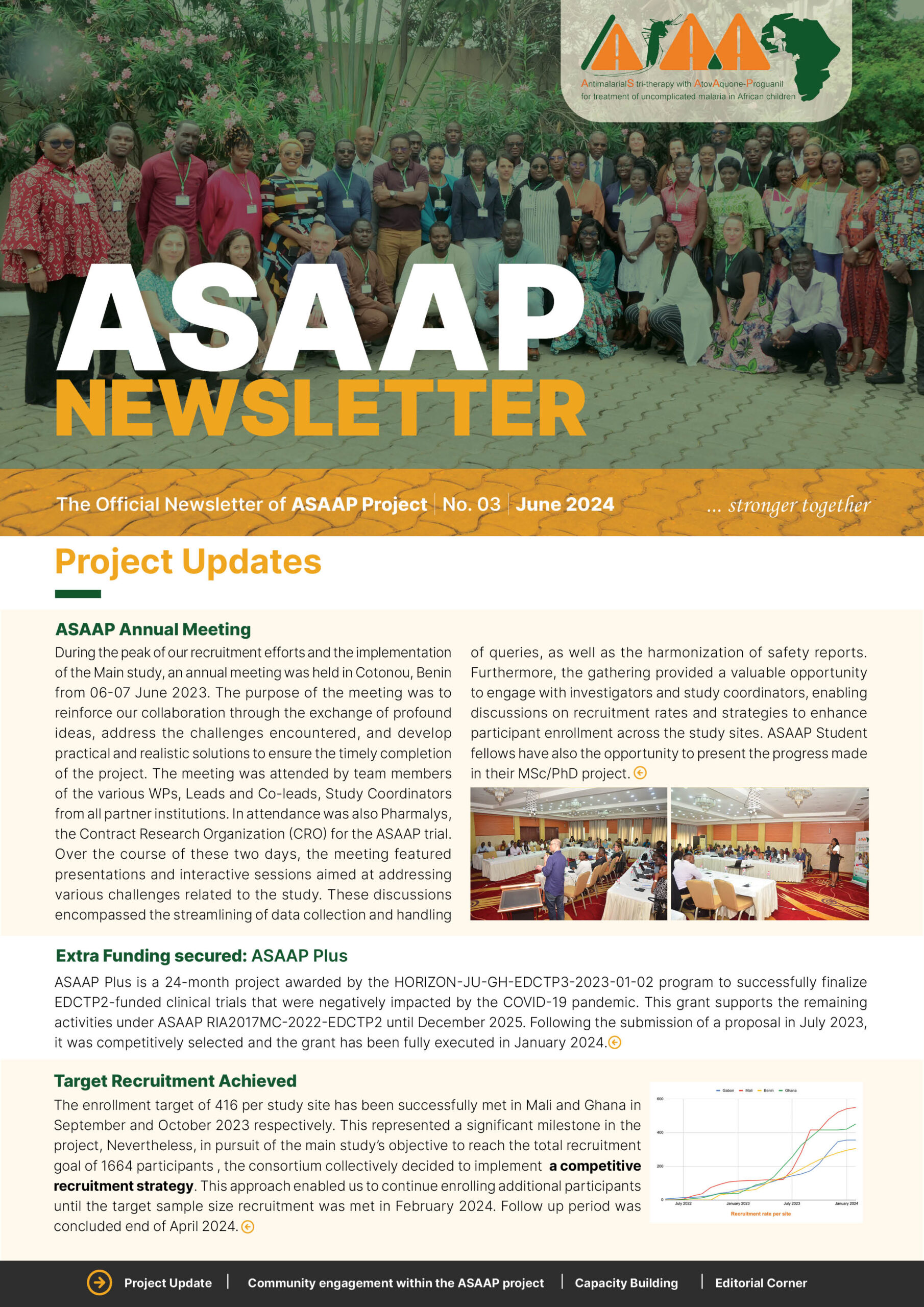The intricacy, pressing time constraints, and absence of a definitive solution to AMR have led to its categorization as a ‘super wicked problem’. Dr. John Amuasi, lead of the Global Health and Infectious Diseases research group at the Kumasi Centre for Collaborative Research into Tropical Medicine (KCCR), KNUST, is also the Principal Investigator on the Antimicrobial Behavioral Change Research project which has been ongoing for more than three years.
“In this project, we sought to understand the importance of AMR both in Humans and in animals and how these interact with each other,” Dr. Amuasi said.
“Sepsis kills over 2 million people in Africa every year, and this is thought to be a gross underestimation, simply because we don’t have the tools to collect all that information.
“Sepsis can be treated with antibiotics or antimicrobials, but if those medicines are not effective, because the pathogens causing the sickness are resistant to it, then we are in trouble,” he added.
Dr John Amuasi aired these concerns at the AMR Behavioral Change workshop coordinated by the Kumasi Centre for Collaborative Research in Tropical Medicine, (KCCR), The Council for Scientific and Industrial Research (CSIR), and Noguchi Memorial Institute.
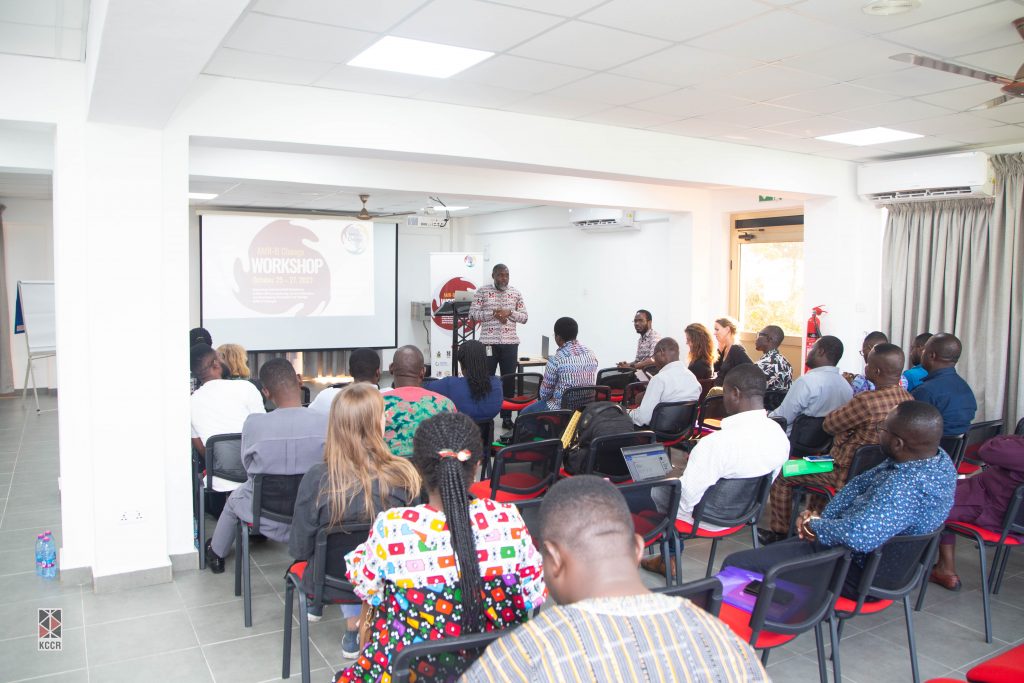
Antimicrobial Behavioural Change Research project
The research underscores the urgency of addressing AMR on a global scale and holds the potential to revolutionize the fight against this growing health threat. This comprehensive initiative takes a multifaceted approach.
The first phase of the project involved gathering baseline data on AMR pathogens in the food supply chain and among humans, creating an inventory of antibiotics at national and local levels, examining professionals’ perceptions of antibiotics and AMR, exploring waste management practices for antibiotic residues, and assessing knowledge and perceptions of AMR in communities.
The current phase adopts a design thinking approach to develop interventions for AMR, engaging community members, healthcare professionals, and institutional stakeholders in deliberative workshops.
Dr Amuasi added, “This is why studying or trying to understand patterns of resistance, how this emerges and the direction in which they are going is so important.
“Especially in relation to animals where a lot of people are using huge quantities of antibiotics, and antimicrobials as part of their farming, therefore leading to an increased risk of antimicrobial resistance developing in animals and humans.”
“These interact with each other into what we call a ‘super wicked’ problem,” Prof Amuasi clarified.
Dr. Charity Wiafe Akenten, Research Fellow with the One Health Bacteriology Research Group at the Kumasi Centre for Collaborative Research in Tropical Medicine, KNUST, lead of the laboratory arm of the project shared some findings.
“We found that 40% of the 800 samples of meat collected from the livestock farms contained Extended Spectrum Beta Lactamases (ESBL) E.coli. This bacterium causes foodborne illness, sepsis, and diarrhea, and has a mortality rate of 5%.
“What is alarming is the resistance pattern for ESBL E.coli. More than 90 percent of the bacteria were resistant to Ceftriaxone, Cefuroxime, and Ampicillin. This is not good.
“Even for antibiotics that are not commonly used like Meropenem, 24% of ESBL E.coli cultured were resistant. This is a problem.”
Extended Spectrum Beta Lactamases (ESBL) are enzymes capable of breaking down antibiotics like penicillins, broad-spectrum cephalosporins and monobactams. Bacteria that produce ESBL may be resistant to the antibiotics they break down.
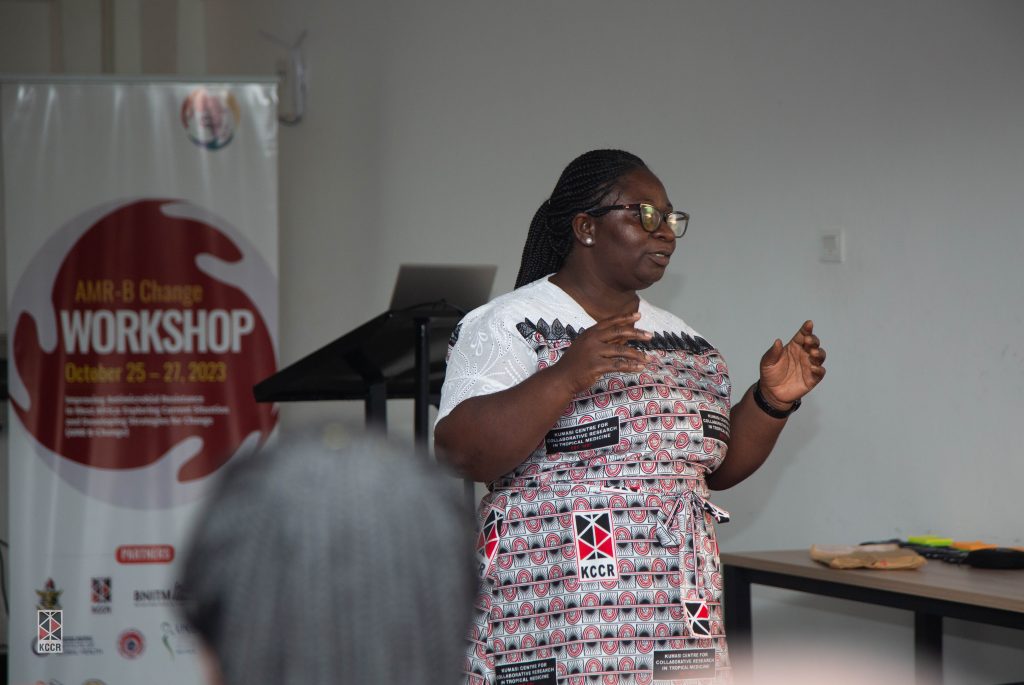
Mr Solomon Boakye, the Ashanti Regional Disease Control Officer was worried about the struggle to treat infections with readily available antibiotics due to abuse.
Dr. Yeboah Gyedu, Senior Medical Officer at Agogo Presbyterian Hospital cautioned patients to desist from self-medication.
“Most people are given a prescription when they come to the hospital, instead of returning to the hospital for follow-up, they rather go to pharmacy shops to buy medications on their own.
“If they are given a particular antibiotic today, the next time they are unwell, they may not require that same antibiotic. If they continue to repeatedly use one antibiotic, they are likely to develop resistance,” he said
Dr Gyedu added, “The program helped us understand the importance of having restrictions to the access people have to antibiotics, especially over-the-counter medications.”
The AWaRe classification, developed in 2017 by the WHO Expert Committee on Selection and Use of Essential Medicines, categorizes antibiotics into Access, Watch, and Reserve groups. This classification supports antibiotic stewardship efforts at various levels and highlights the importance of their judicious use to counter antimicrobial resistance.
Updated every two years, AWaRe serves as a tool for monitoring antibiotic consumption and guiding stewardship policies to optimize usage and address antimicrobial resistance.
Dr. Charity Wiafe Akenten explained that findings like these give an idea of the gravity of the issue and why stakeholders must be engaged across the board.
“A lot of people are not aware of the AWaRe classification. To reduce AMR, prescribers need to be aware of the WHO AWaRe classification system.
“Raising awareness about AMR is crucial. Public education and awareness campaigns can help individuals and healthcare professionals understand the importance of responsible antibiotic use and the consequences of AMR,” she concluded.

Partners in AMR-B Change Project are Kwame Nkrumah University of Science and Technology (KNUST); Kumasi Centre for Collaborative Research in Tropical Medicine (KCCR) and Bernhard Nocht Institute for Tropical Medicine (BNITM).
The rest are University of Ghana; Heidelberg Institute of Global Health; The Council for Scientific and Industrial Research (CSIR); Heidelberg Faculty of Medicine; Laboratoire Population Environment Development; Centre de Recherche en Santé de Nouna (CRSN) (Burkina Faso); Institut de Recherche en Sciences de la Santé (Burkina Faso); Institut de Recherche pour le Developpement (France); Centre international de Recherche en Afrique.
